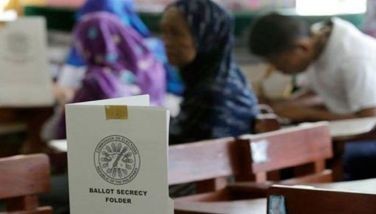House bill seeks to criminalize discrimination
MANILA, Philippines - A lawmaker has vowed to protect the rights of any person who is treated less favorably on the basis of race, ethnic origin, religion or religious affiliations or beliefs under a bill seeking to eliminate cases of discrimination in the country.
Tarlac 2nd District Rep. Susan Yap said House Bill 401 seeks to create an effective and comprehensive legal framework to fight against all forms of discrimination.
"The bill will avoid unnecessary prejudice and other forms of intolerance and give equal opportunity to each individual to achieve his full potential as a person and as a Filipino citizen," Yap said.
Yap said the bill seeks to lessen if not eliminate cases of discrimination in Philippine society as it penalizes acts of discrimination, profiling, violence, and all forms of intolerance in employment, education, delivery of goods, facilities and services, accommodation, transportation, media, in search of investigatory activities, and in political, civil, cultural and social life on the basis of ethnicity, race, religion or belief, sex, gender, sexual orientation, gender identity, language, disability and other status.
The measure also aims to instill in the youth the value of respect to the identity, affiliation, status and preferences of other people by including in the curriculum of public and private schools, from primary to tertiary levels, discussions based on ethnicity, race, religion or belief, gender, sexual orientation, gender identity, language, disability or other status.
Under the measure to be known as "The Anti-Racial, Ethnic and Religious Discrimination Act of 2013," the Commission on Human Rights (CHR) is mandated to prevent or deter the commission of, and prosecute acts of discrimination and provide legal assistance to victims of discrimination.
The bill provides for the reparations to victims of discrimination, which includes restitution, compensation and rehabilitation.
It also creates an Equal Opportunity Committee in all agencies, corporations, companies and educational institutions both private and public, which shall have administrative jurisdiction over cases involving discrimination.
Violators face 6 months imprisonment and a fine of not more than P100,000.00.
The proposed law is in consonance with the duty of the state to promote a society that values the dignity of every human person and guarantees full respect for human rights regardless of a person's social status, personal preference, beliefs and affiliation.
- Latest
- Trending






























